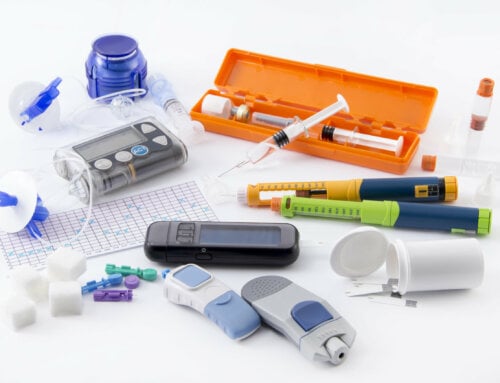The time is now and searching for a summer camp should have started and children with diabetes have special needs to keep in mind when choosing a camp. Over 20,000 children in North America share their diabetes and fun with friends during the school break. Summer camps give children with diabetes a chance to unwind and be “just regular kids” for a while after the demands of traditional learning have ended. Whether your child goes to a diabetes camp, or a regular camp, is a personal decision that you and your child will make. All camps are fantastic places to socialize, learn new skills, participate in athletics, arts, drama and crafts, and become more independent. Diabetes camps can make you more efficient at taking care of diabetes along with all of the other fantastic activities.
Discover reasons as to why and how to choose summer camp. Learn to pack properly to reduce your fears about sending your child with diabetes away for a few days or weeks.
How do I choose a summer camp?
Choosing a camp is a parent’s first challenge and responsibility. The first diabetes camp was opened in 1925 and now there are more than 100 diabetes camps across the country. There are definite advantages to choosing dedicated diabetes camps for your camper.
Why choose a diabetes camp?
Parents tend to worry about sending their child to any summer camp, adding the anxiety of sending a child with a chronic disease makes it even more difficult. Diabetes camps teach all aspects of diabetes without making it seem like schoolwork. They have an understanding of the child with diabetes without much explanation and help them make important decisions. The core message is, “you are not the only kid here with diabetes, you are the norm.” Diabetes camps are best for new onset children or for those who have had diabetes for less than one year. It is also excellent for children who want to keep learning and continue to master their diabetes care. With the surge in type 2 diabetes in children, diabetes camps welcome children with both types.
Diabetes camp advantages:
- Children have their daily needs met whether it includes diabetes care, social interaction and just plain being a kid.
- Each camper is evaluated and treatment for diabetes is revised as often as needed.
- Physical activity is monitored, and levels are increased or decreased accordingly.
- Carbohydrates are chosen appropriately, counted and recorded. Personalized nutrition plans are created. Meals are never skipped. Healthful snacks are provided.
- Insulin amounts will be based on blood sugar values and not just kept on a daily fixed amount.
- Diabetes information will be provided based on how it relates to the current activities. Chats and interactions will be initiated.
- Safety is a huge priority – glucose testing, CGM system, insulin injections and pump maintenance. Medical staff are fully involved.
- Hypoglycemia is treated immediately. Children with a more intense physical program such as hiking, swimming, running will drop blood sugars more rapidly. Treatment is quick and effective since it is easily recognized by these professionals.
- Fun is recognized and supported as much as diabetes care.
What about sick day management with diabetes?
Although adequate rest, sports, activities, high quality nutrition and fun are part of the usual day, children can still get sick outside the realm of diabetes. Medical staff and counselors know how to treat cuts, scrapes, insect bites, pink eye, minor injuries as well as stomach bugs, respiratory viruses, flu in addition to diabetes issues. The staff also knows when to refer the child to outside resources when necessary.
Who sponsors diabetes camps?
The Diabetes Education and Camping Association (DECA) camps are available throughout the country. These camps usually have affiliations with hospitals, clinics and diabetes centers. They are sponsored by many of the large diabetes companies including Novo-Nordisk, Lilly and Omnipod. The staff is full of diabetes professionals who are often volunteers. Even the counselors are well versed in diabetes care and often have diabetes themselves. Junior counselors are 16-17 years old and help out with the younger campers. Senior counselors are usually between 18-early 20s and relate well to all campers.
What can you learn?
- It teaches independence in a non-threatening atmosphere.
- Comradery develops since, “we are all in this together.”
- You can learn about diabetes in a one-on one experience at your own pace.
- It fosters self-responsibility, self-awareness and self-confidence.
- You can learn by doing, not watching.
- Studies show that campers at diabetes camps, “have less diabetes related emotional issues, less sadness and anger.”
Fees and visiting days
Some diabetes camps only charge 50% of the true cost of the camp experience. This is possible due to many fundraising efforts as well as generous donors. There is also a sliding scale payment for those who can’t afford the reduced price. Scholarships or “camperships” may be awarded based on availability and camper need.
Many diabetes camps offer visiting days before the camp session starts. Campers and families can learn about the camp and what it has to offer. They can see the whole facility. Parents and campers can meet the staff and ask specific questions. This can take the anxiety out of “the first day experience.”
Are there different types of programs available?
There are family weekends, sibling weekends, day camps, one month sleep away camps, 8-week summer sleep away camps and holiday retreats. Everyone should be able to find their perfect experience.
What about a regular summer camp when you have diabetes?
This entails a careful family decision. Most campers start out at day camp between 5-8 years old. Overnight camps are generally for those 8 and older. The time is right for your child to attend camp, when it feels right. Depending on your camper, and their confidence caring for their diabetes, should play a big factor in deciding which kind of camp to attend. The “camp mission” is the core of the non-diabetes camp. They are able to care for the camper with diabetes, but the experience will be different. Usually a school nurse who treats students with diabetes during the year is in charge. When thinking about a non-diabetes camp ask questions including:
- What is the ratio of campers to counselors/medical professionals?
- Are the counselors trained in caring for children with diabetes?
- Who knows about the technical aspects of diabetes care?
- Are there other campers with diabetes?
- How are blood sugar highs and lows treated?
- Do they have extra diabetes supplies?
- Is the menu diabetes friendly?
- Is there diabetes management for higher risk activities like hiking, rock climbing, and swimming?
What else do you need to know?
- Consider which activities your child prefers, such as art, surf and ski camp, backcountry adventures, music, computers, travel or sports. Try to find a camp that offers these activities as well as regular outdoor activities, recreation and crafts so your child has the best time. Both diabetes and non-diabetes camps offer this.
- The non-diabetes camp you choose should be accredited by the American Camping Association (ACA) to ensure adequate medical staff is available and safety precautions are considered. This accreditation is voluntary, but it does promote better staffing and emergency facilities. Watch a video or take a personal tour of the camp before deciding to send your child there.
- Ask for names of campers who have diabetes and attend the camp. Contact them and see if they can answer questions for you. Parents are usually happy to share positive experiences.
- Once you choose a camp, make sure the staff and your child understand the change in routine may cause blood sugar fluctuations. Based on your child’s age, educate him or her about proper diabetes management, including blood sugar monitoring and taking medications such as insulin. Discuss your child’s diabetes self-management plan with the staff so they understand it. Younger children may require more assistance from staff members. Find out who will be helping your child and provide all necessary medication, supplies and information in case of emergencies. If your child uses an insulin pump, make sure there is a staff member well versed in its operation. They may need to troubleshoot. Have the child practice settings prior to attending camp. Make sure the staff understands the need to monitor your child more carefully.
What about food and supplies?
- Eating choices can make a difference when your child has diabetes. Inquire about the daily menu at the camp to ensure they serve healthy and fresh foods. Choose a camp that serves a variety of fruits and vegetables, whole grain breads and pasta, lean meat, fish and low-fat dairy products. Make sure they have appropriate treat foods and glucose tablets or gel to treat hypoglycemia. They will need to provide a bedtime snack, daily. Let the staff know if your child has specific dietary restrictions. Review proper eating habits with your child so there is no confusion. Consider scheduling a consultation for your child with a dietitian or a diabetes nurse educator before camp starts since they are not available at a regular non-diabetes camp.
- You will need to pack supplies for your child, such as a blood glucose monitor with lancets, medication and insulin. Identify the staff members who can verify blood sugar monitoring and ensure medications are administered to your child on-schedule. Ask where diabetes supplies will be stored at the proper temperature. Find out about how strips, lancets and insulin syringes are disposed of.
- Request the manual or care plan the staff uses regarding the management of diabetes. Ask what additional supplies should be packed. Your child should always carry glucose tablets/gel for hypoglycemia, even if food is not allowed in the bunks. Give your child a prepaid cell phone to contact you during emergencies. Find out the present policy about making in and outbound phone calls from camp. Make sure they wear a medical ID around their arm or neck stating: DIABETES.
Diabetes and non-diabetes camps
- Give the camp director and nurse a list of your child’s basic diabetes needs. The list should include emergency contact numbers, contact information for all medical providers, prescriptions, supplies, symptoms of low blood glucose and when low blood sugar is more likely to occur. Include treatments for low blood sugar and how to work with your child if he or she resists treatment. Find out who administers glucagon shots and where they are kept. Research ambulance service in the area and the distance to the nearest local hospital. Discuss labeling medical supplies and the need to store them at the right temperature.
- Always pack twice the amount of supplies your child needs. Beyond diabetes necessities, make sure to pack the right daily items for your child. The camp will generally send a list stating other required items.
- Don’t forget the camp essentials: mosquito spray, sunscreen, a wide brimmed hat, sunglasses, a small umbrella, rain slicker and rain boots. Every camper should be stocked with the correct supplies.
- Do your homework. Regular camp is an option if your child is well versed in diabetes care and is self-confident. You should discuss this with your child and your at home health care team.
Summer camp gives your child an opportunity to learn, become more independent and have fun. Diabetes camps can also teach children about self-management and healthy lifestyle habits. Regular camps may also be an option. With planning and preparation, your child can have a safe and happy summer!







Leave A Comment